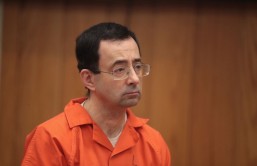Autism has been linked to substantially shorter lifespans, and alarming new research reveals that people on the autism spectrum are dying 12 to 30 years earlier than the rest of the population.
Previous studies revealed that people suffering from autism have higher risks of dying early from a host of diseases. However, the latest study reveals that two main contributors to early death in autism seems to be suicide and epilepsy.
"Up to 40 percent of people with autism also suffer from epilepsy. People with autism may also differ from those in the general population by having a more restricted diet, limited access to exercise and increased use of medication," the research team wrote.
Researchers from the Karolinska Institute in Sweden found that people with autism die, on average, 18 years earlier than the general population. Further analysis revealed that people suffering from autism and intellectual disability die 30 years earlier and those without intellectual ability die an average of 12 years earlier than the general population.
The latest study, which involved data from more than 27,000 adults on the autism spectrum, revealed that autistic adults who do not have learning disabilities are nine times more likely to die from suicide compared to people in the general population. After looking at differences between men and women, the researchers found that women with autism and learning disabilities had the highest risk of premature death.
"This new research confirms the true scale of the hidden mortality crisis in autism. The inequality in outcomes for autistic people shown in this data is shameful. We cannot accept a situation where many autistic people will never see their 40th birthday. Everyone involved in supporting people on the autism spectrum from the Government right down to local care providers has a responsibility to step up and start saving lives as soon as possible," Autistica's Chief Executive Job Spiers said in a statement released by the autism research charity.
"The shocking levels of premature death and suicide among people on the autism spectrum should be a wake-up call to governments and service providers worldwide: dramatic proof that bullying, lack of support, inadequate health care across the lifespan, insufficient allocation of resources to create options for housing and employment, and a failure to aggressively pursue research into better treatments for chronic anxiety and seizures comes at a terrible cost. As a society, we can longer afford to squander precious human lives and potential in this way," added Steve Silberman, author of the book "Neurotribes."
The study was recently published in The British Journal of Psychiatry.








